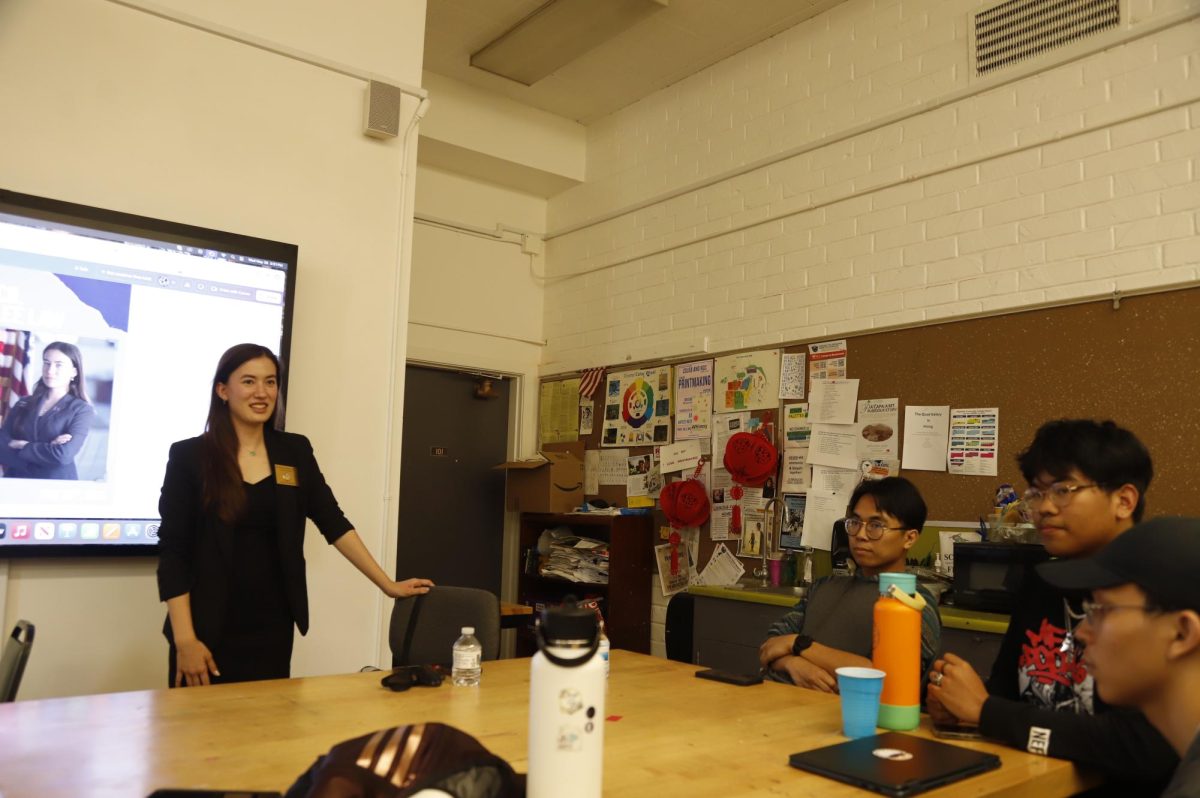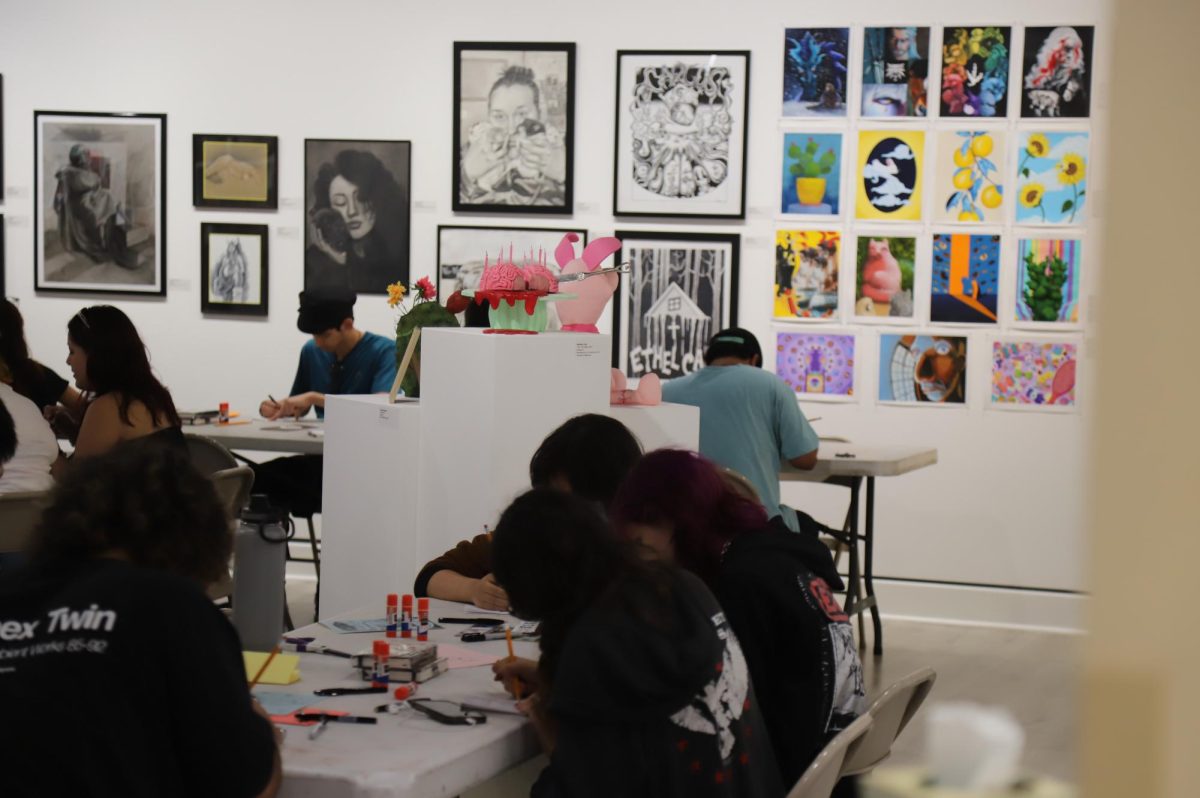
Correction: Updated to reflect accurate dates.
By Louis Tozser
“I stand before you as a candidate for the Democratic (Party) Nomination for the presidency of the United States of America,” Shirley Chisholm said on Jan. 25, 1972. Those words were spoken by a woman who made history decades ago on multiple levels.
It would also start the 6 month series of events that would inspire the film “Shirley.”
The film debuted on Netflix on March 22 and shows the story of Chisholm’s unsuccessful 1972 campaign for President.
According to Netflix, the film is about how “the first black woman (Chisholm) elected to Congress makes an against-all-odds run for president.”
On Nov. 5, 1968, Chisholm, a Democrat from New York made history as the first African American woman to be elected to any chamber of Congress. Less than four years later Chisholm announced her ambitions to run for President.
When she announced her campaign, she made history by being the first female to run for the Democratic Party nomination for president. She also became the first African American to run for the presidential nomination of a major political party.
She joined a crowded primary, consisting of candidates such as Alabama Gov. George Wallace played by W. Earl Brown, California Rep. Ron Dellums played by Dorian Missick, DC Delegate Walter Fauntroy played by André Holland, Minnesota Sen’s. Hubert Humphrey and Eugene McCarthy represented via video archives and many others.
Lance Reddick appeared posthumously in the film as Chisholm’s campaign manager, Wesley Macdonald “Mac” Holder.
She spent the next six months between her campaign announcement in January until the Democratic National Convention (DNC) on July 13, traveling across the nation to gain delegates as well as gather more supporters to vote for Chisholm.
During a speech in California, she invited Barbera Lee, played by Christina Jackson, who was a student at the University of California Berkeley (UC Berkeley) to join her campaign as a volunteer. Chisholm would also initially focus on the states of Florida (81 Delegates), Massachusetts (102 Delegates), Minnesota (64 Delegates), Wisconsin (67 Delegates), New Jersey (109 Delegates) and North Carolina (57 Delegates).
Chisholm worked towards gaining delegates in the states of California, Arizona, Wisconsin and Michigan along with gaining the endorsements of the Black Panther Party and other organizations.
It was also discovered in April 1972 that the three major networks, ABC, CBS and NBC News, were in violation of FCC regulations and the Civil Rights Act of 1964 when they claimed that Chisholm did not qualify to participate in the Democratic Primary Debate that CBS held along with the planned ones for ABC and NBC.
Chisholm’s campaign would take the three major networks to court, being represented by Robert C. Gottlieb, a recent graduate of Cornell University and the head of Chisholm’s student division for her campaign.
Due to her victory in court, NBC and ABC were ordered to allow Chisholm to participate in the scheduled debate along with Sen. McGovern of South Dakota, Sen. Humphrey of Minnesota, Sen. Muskie of Maine, Mayor Sam Yorty of Los Angeles and Gov. Wallace of Alabama.
CBS was ordered by the court to give a thirty minute uninterrupted time slot to Chisholm to allow her to answer questions about herself and the campaign due to her absence from their primary debate.
In May 1972, she would also learn that Gov. Wallace had been shot by a 21 year old man by the name of Arthur Bremer while campaigning in Laurel, Maryland. Chisholm would make a surprise decision to the nation when she went and visited him in the hospital for a period of fifteen minutes. During her visit, she would tell Wallace that she “wouldn’t want what happened to you to happen to anyone (and that) she knows what it is like to have someone try and take your life.”
Leading into the convention, she would hold 250 of the 3,014 delegates, largely due to Chisholm gaining the votes from twenty-one of Louisiana’s forty-four delegates and twelve from Mississippi’s twenty-five delegates.
She also managed to secure thirty-four more delegates from the states of Ohio (twenty-three out of one hundred and forty-five), Pennsylvania (nine out of one hundred & eighty-two) and Florida (two out of eighty-one).
Humphrey dropped out early into the DNC, ordering his black delegates to vote for Chisholm which would have prevented McGovern from securing victory on the first ballot.
However, both Dellums and Fauthroy managed to have a large majority of Chisholm’s delegates to pledge their support for McGovern and for him to receive the nomination.
Chisholm ended her campaign on July 13, 1972 when South Dakota Senator George McGovern secured the nomination with 1,729 delegates or 57.3%. Chisholm would leave the DNC with 152 delegates (5.04%) and history made.
The film would conclude with an epilogue showing what happened to the major characters of the film.
Chisholm would stay in Congress until 1983 and would stay involved in U.S and International politics until her passing in Jan. 2005 at age 80.
Wallace was re-elected to two more four year terms as Governor of Alabama in 1974 with 83.2% and in 1982 with 57.6% of the vote. He would be the last Democratic Governor of the state to win re-election.
Dellums retired from the House in Jan. 1998 and later served as mayor of Oakland, CA in 2007 to 2011. He passed away in July 2018 at age 82.
Fauntroy stayed as the D.C. Delegate in the House until his retirement in Jan. 1991. He would mostly retire to public life and is still alive at the age of 91.
Barbera Lee would not leave the world of politics after the end of Chisholm’s campaign in July 1972. She would later help the mayoral campaign of Bobby Seale, the co-founder of the Black Panther Party, for Mayor of Oakland.
Lee would graduate from UC Berkeley in 1975 and from then until 1990, she would mostly intern for other African-American politicians such as Dellums and Fauntroy.
She was elected to the California State Assembly in November 1993 and was inaugurated on Dec. 3. Lee would spend three and a half years in the State Assembly until being elected to the California State Senate in November 1996.
Lee would serve as the state Senator for California’s 9th District, when in April 1998, she ran to succeed Dellums in the House, whom Lee had formerly served as his Chief of Staff from 1983 to 1987.
Lee is still currently in the House of Representatives, serving her thirteenth and final term in the House. Lee did not file to run for another term in the House due to her campaign in the 2024 California U.S. Senate Race against Rep. Katie Porter, former MLB Star Steve Garvey, and Rep. Adam Schiff.
She would lose the primary, coming in fourth securing 9.8% of the vote, with Porter coming in third with 15.7% of the vote along with Schiff and Garvey progressing to the general election securing 31.6% and 31.5% respectively.
In conclusion, the film shows the story of a woman who would shake the field of American Politics and would inspire many politicians of the current generation, such as Rep. Barbera Lee, Vice President Kamala Harris, and President Barack Obama.












